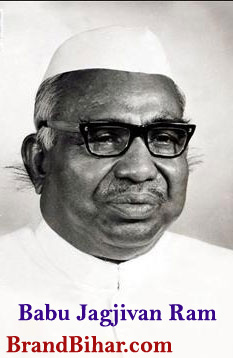Babu Jagjivan Ram (1908 - 1986)
Life and Journy of Babu Jagjivan Ram
Babu Jagjivan Ram (1908 - 1986) Jagjivan Ram, popularly known as Babuji was born on 5 April 1908, in Chandwa. His father, Shobhi Ram, was by caste an asprisya or untouchable. In August 1933 his first wife died after a brief illness, thereafter in June 1935 he married Indrani Devi, a daughter of Dr. Birbal, a well-known social worker of Kanpur, and the couple has two children, Suresh Kumar and Meira Kumar. He was a member of Lok Sabha for 36 years without a break from 1950 onwards. He was associated with the Indian National Congress from 1932 to 1977. As a Union Minister, Jagjivan Ram had been holding different portfolios from 1946 to 1963. He remained the Deputy Prime Minister from January to July 1979. He had the vision of a casteless and democratic Hindu society. He took active interest in the movement for social reform and for the upliftment of the weaker sections of society. While at Banaras Hindu University he organised the scheduled castes to protest against social discrimination and later arranged conferences at Calcutta to draw the attention of social and political leaders of Bengal. He also participated in the anti-untouchability movement started by Gandhiji. Throughout his life, he believed passionately in human dignity and individual freedom. He abhorred human oppression and believed in the philosophy of ‘with malice towards none, and charity for all’. His birth anniversary day is observed as 'Samata Diwas' as he believed in bringing equality among all in the society. He died in July 1986. |

